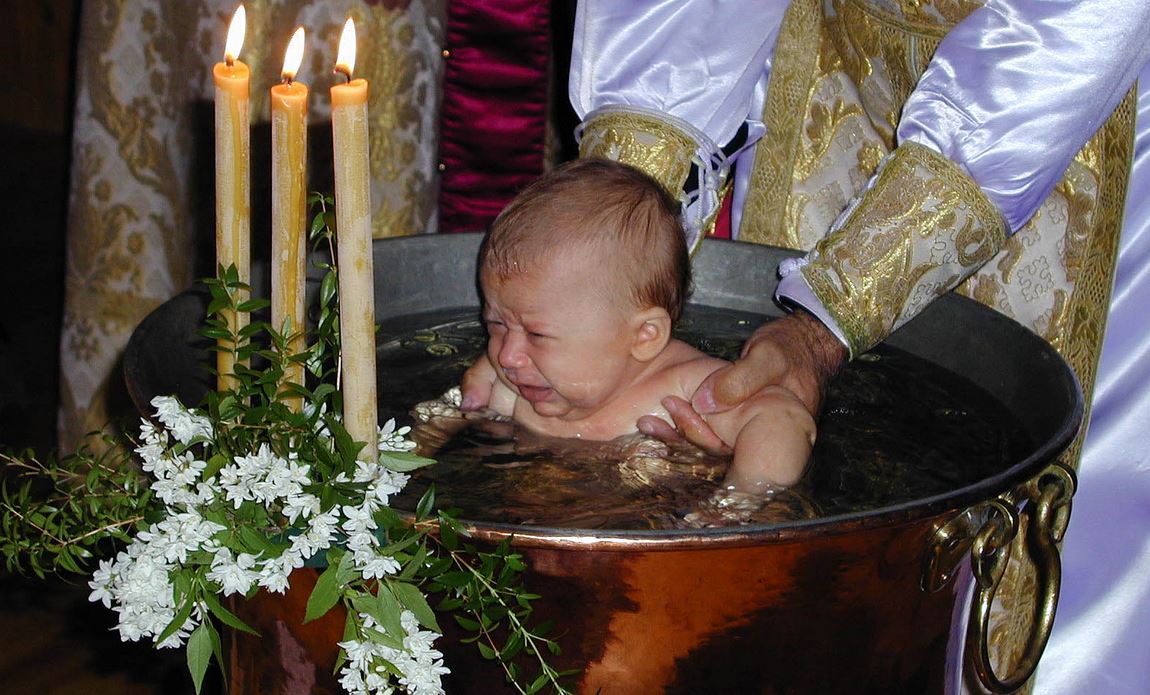
by Fr. John Hainsworth
Children don’t understand the faith – does that make them ‘second class citizens’ of the Body of Christ – is that a reason not to baptism them into the Church?
The assumption behind this objection to infant baptism, one which did not exist in the early Church or in the centuries which followed, is that faith is a product of reason. That to truly believe, our minds must be capable of understanding why we believe, or at least able to provide intellectual consent. For the adult convert to the Orthodox Church, intellectual consent is crucial. Baptism is not magic. It is a voluntary act of submission to God, a consent to live in relationship with God within the covenant He has established through His Son with a larger body of baptized believers, the Church. But at the same time, faith falls flat if it does not go beyond individual reason. It falls flat because it is so individualized, exclusive, and self-centered.
Tertullian said famously that
“one Christian is no Christian.”
It is true that our faith must be personal, that we must have a personal relationship with God. But our faith must not be limited to that personal relationship alone. Our relationship with God is valid only if it is realized in communion with the whole Church.
I’ve spoken of the Church as family, and I want to return to that image. Children can break fellowship with the family if they consider themselves outside the family’s fate. They are family members only in so much as they live as part of the family, accepting all the responsibilities and self-sacrifice that such family status demands. I don’t have to explain this to my children. They understand from birth that they belong to a larger group, and belong in the most intimate way. They know who their father and mother are and where to go for help and for security. The concept of ‘family’ is beyond them, but the reality of family life is not. In other words, children have a sense of belonging a dozen years or more before they understand what this belonging means.
The earthly family is an image of the heavenly family, the family of the Kingdom of God. Children born to a Christian family are born again into the heavenly family through baptism. A child baptized in the Orthodox Church belongs to a spiritual family. This family bridges both heaven and earth, stretches backward and forward in time and includes both saints and angels. Children belong to this family exactly as each of my daughters belongs to my family. They know in a profound way that they belong long before they have some kind of cerebral understanding of that belonging.
Our modern world so exults reason and cerebralism that young children are sometimes treated as not fully human, or are at least treated less seriously than adults because they can’t think like we do. The truth is that a child is a full human being. A child of any age is capable of expressing and participating in the glory of God. Christ Himself sanctified every age as God-bearing, since He was as much the perfect Word of God as an infant as when He was a grown man. We must remember that children are not second-class persons. Their baptisms are as significant to them and to God as adult baptisms. Even if they do not cognitively understand what that baptism means, they are certainly capable of intuitively understanding it.
Click HERE to read part 4: What if a Child Leaves or Rejects Christ Later in Life?
